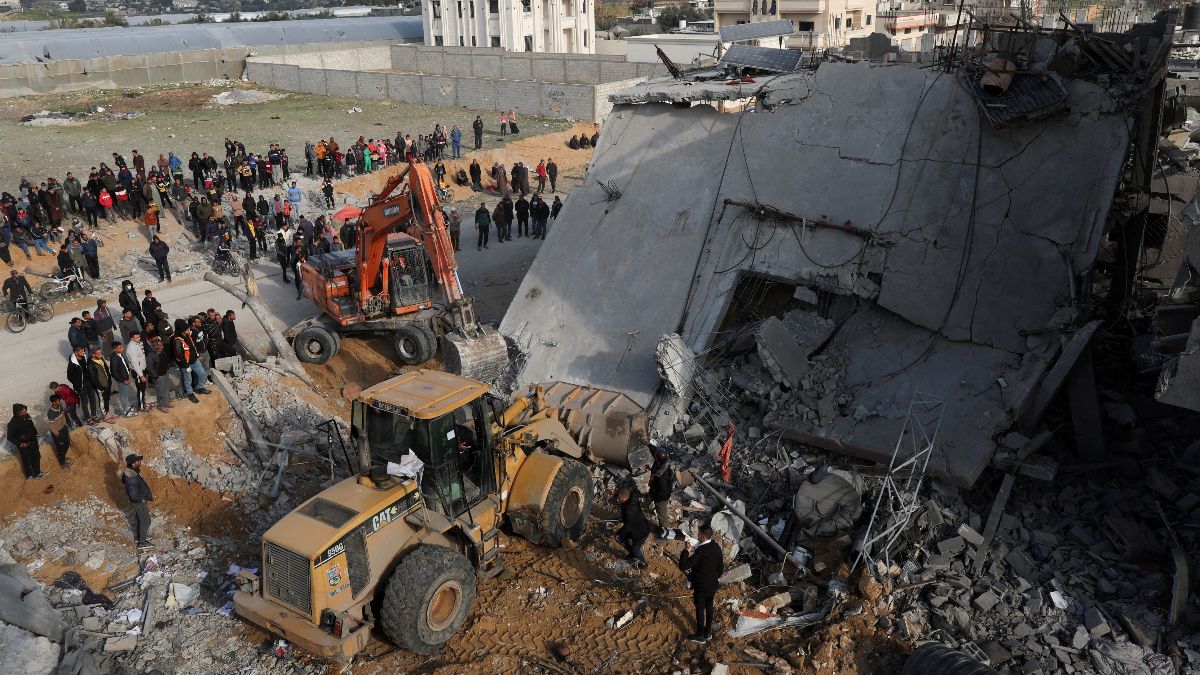Conflict Alerts # 628, 3 May 2024
 Shamini Velayutham
Shamini Velayutham In the news
On 3 May, a Hamas delegation arrived in Egypt for negotiations and said it was "determined to achieve an agreement." US Secretary of State Antony Blinken asserted that "Hamas is the only thing standing between the people of Gaza and a ceasefire and a deal should be a 'no-brainer' for the group." He stated: "We wait to see whether, in effect, they can take yes for an answer on the ceasefire and release of hostages."
On 2 May, Hamas chief Ismail Haniyeh spoke separately with Qatar's Foreign Minister and Prime Minister, Mohammed bin Abdulrahman Al Thani, and the head of Egypt's security services, Abbas Kamel. He has conferred with mediators from Egypt and Qatar over the most recent Israeli request for a ceasefire in Gaza and a prison swap. According to a Hamas official statement: "Haniyeh appreciated the role played by Egypt, which along with Qatar and the US is mediating the talks, and stressed the positive spirit of the movement in studying the ceasefire proposal."
On 30 April, amid uncertain cease-fire negotiations, Israeli Prime Minister Benjamin Netanyahu reiterated that his country would launch a ground offensive on Rafah in the southern Gaza Strip. He said: "The idea that we will stop the war before achieving all of its goals is out of the question. We will enter Rafah and we will eliminate Hamas' battalions there – with or without a deal, to achieve total victory."
On 29 April, a top Hamas delegation travelled to Egypt to prepare for the most recent round of negotiations. At discussions in Cairo facilitated by Qatar and the US, a team headed by Hamas deputy leader Khalil al-Hayya presented Hamas's response to the most recent Israeli offers. On 27 April, following up on a potential truce in Gaza proposed in early April, Hamas said it had received Israel's formal response and would review it before responding.
On 28 April, speaking at a World Economic Forum in Saudi Arabia, US Secretary of State Antony Blinken asserted that securing a truce between Israel and Hamas is the most effective approach to alleviate the humanitarian crisis in Gaza. He stated: "We were hoping to see more commitment and more seriousness on both sides." He added, "We are, with the help of our international partners, hoping that we can pressure both sides to an agreement, but right now we are seeing from both sides a lot of lack of commitment to the process itself and the mediation."
On the same day, according to British Foreign Secretary David Cameron, the current offer made to Hamas calls for the release of Palestinian prisoners as well as a long-term ceasefire of 40 days.
Issues at large
First, the pressure on Hamas. On 14 April, Hamas rejected Israel's proposal as Israel plans to continue its operations in southern Gaza. On 7 April, negotiators were in Cairo for talks. According to Egyptian authorities, some progress had been made on a three-phase agreement involving prisoners' return in exchange for a permanent truce. Still, Hamas did not concur with that assessment. In March, Israel suggested that an Arab force supervise a temporary security presence in Gaza, but the idea was turned down.
Second, Netanyahu's emphasis on military operations in Rafah. Netanyahu is determined to carry out military operations in Rafah. Approximately 1.3 million Palestinians live in the Rafah. The great majority of these people were uprooted from northern Gaza. While the rest of the world has been pressurizing Israel to give up on the idea of targeting Rafah, Netanyahu remains adamant and has threatened to carry out the military operations, irrespective of Hamas agreeing to the deal.
Third, the demands of Israel and Hamas. Hamas wants an end to hostilities permanently, and the Israeli forces leave Gaza. Other demands include the following: displaced Palestinians must be allowed to return to their homes without hindrance; additional aid must be allowed into the region; and a reconstruction effort must begin. Israel demands the release of the hostages who have been held captive since 7 October 2023.
Fourth, internal divide in Israel. If the ceasefire includes what they would perceive to be favourable to Hamas, National Security Minister Itamar Ben-Gvir and Finance Minister Bezalel Smotrich have openly vowed to "dismantle" the government and remove Netanyahu. At the same time, a Member of the Israeli war cabinet, Benny Gantz, holds a different opinion. According to Gantz, freeing prisoners is "urgent" and should be the government's priority. Leader of the opposition, Yair Lapid, has also called for a compromise centred on the release of Israeli prisoners.
In perspective
While there is external pressure on Israel and Hamas, both sides seem to be sticking to their demands. While there is substantial pressure on Hamas to agree to the release, the latter is worried whether Israel will stop the military action against it. In between, the larger question of military operations in Rafah remains the biggest threat to civilians in Gaza.